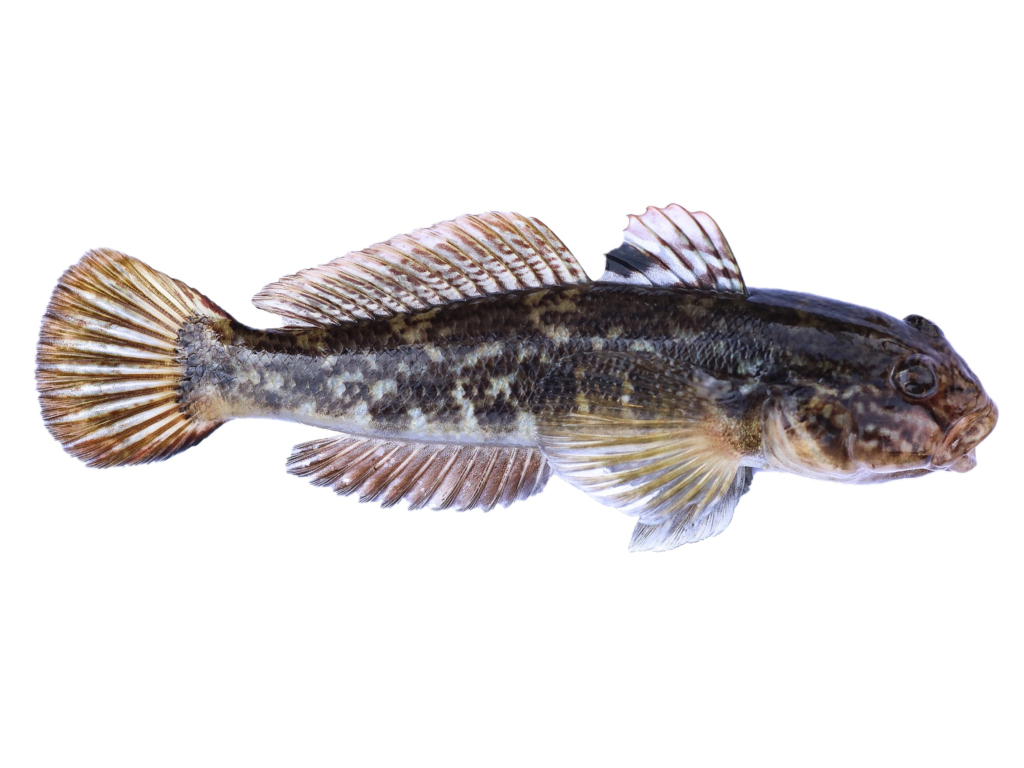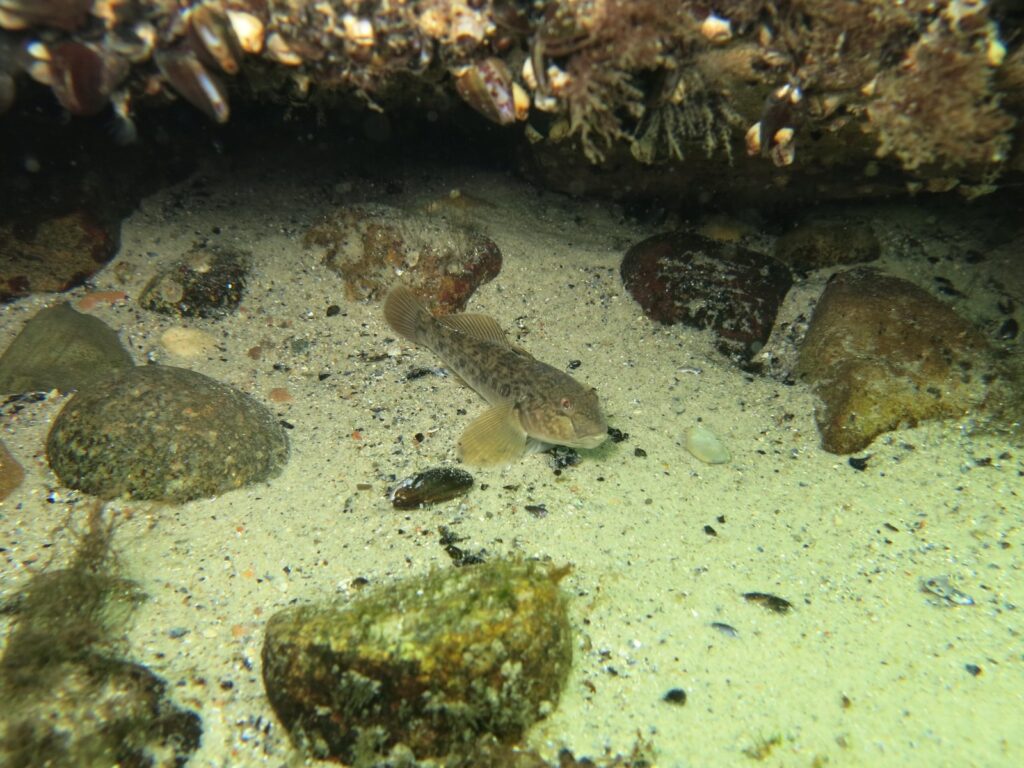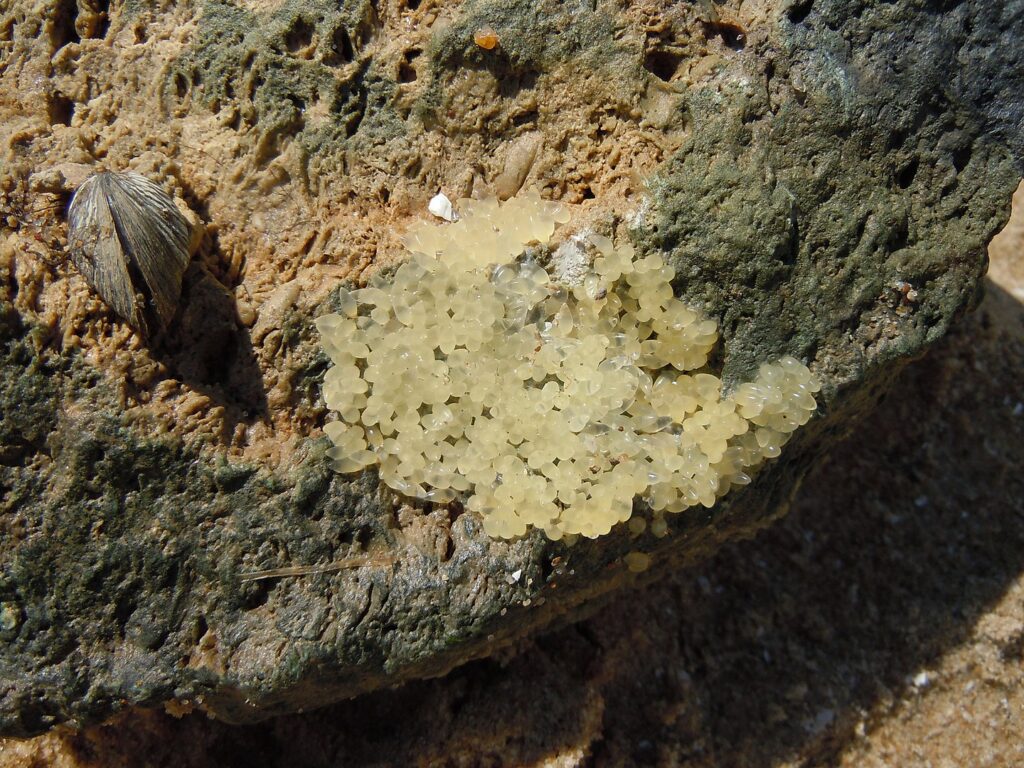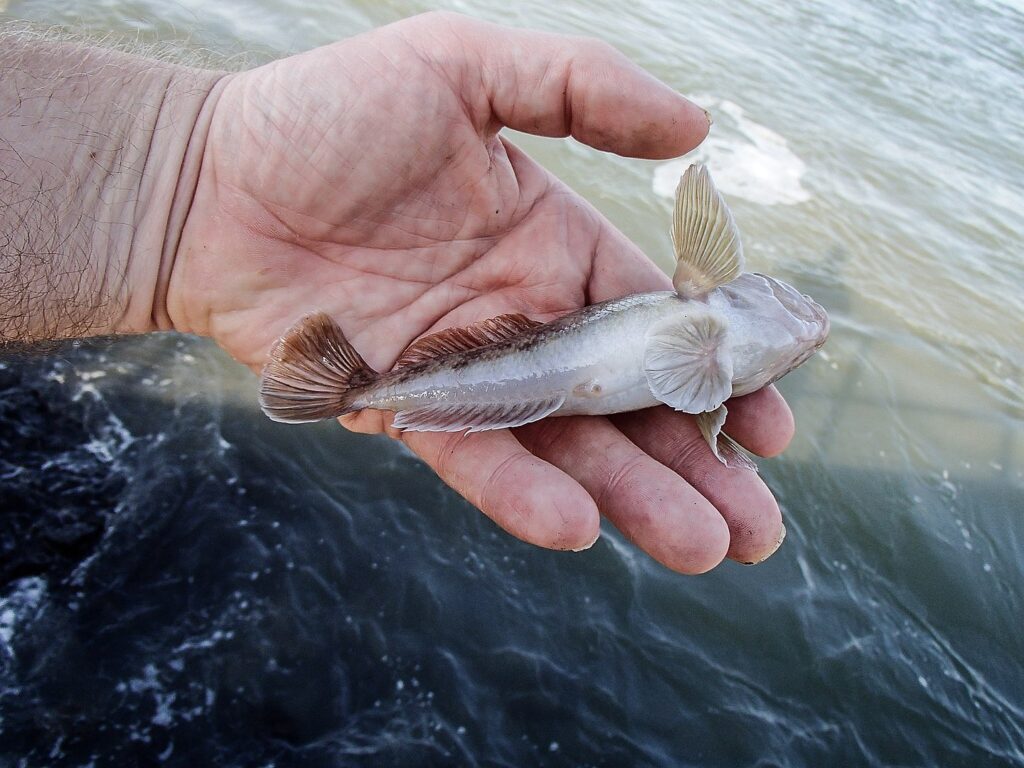Round goby
Neogobius melanostomus

Arrived in the Baltic Sea by cargo ships
The round goby is a bottom-dwelling fish that likes to hide among rocks and gravel. It can be found both in open water and in harbour areas. The round goby prefers brackish water, but can also inhabit fresh and salt water. It also tolerates large temperature changes and low oxygen levels.
Although native to the Caspian and Black Seas, the round goby has spread to much of Europe and North America. It was discovered in the Baltic Sea in the late 1990s, and was first found in Swedish waters in the Blekinge archipelago in 2008. The fish is believed to have spread from its area of origin, as fry and eggs, in the ballast water of cargo ships.

Photo: schnonkel-CC-BY-NC-SA
The males die after spawning season
When the round goby is about to mate, the male often turns completely black. He chooses a nest hole among the rocks on the bottom, into which he lures the female. The female lays eggs which are attached to rocks and aquatic plants. The male then guards the eggs alone until they hatch. Sometimes several females lay eggs in the same male’s nest. A female round goby can breed up to 6 times in a season! In contrast, the male dies shortly after his fry hatch.

Photo: Yuriy-Kvach-CC-BY-SA
Aggressive and resilient
Because the round goby is resilient, aggressive and can reproduce at high rates, it has been able to increase its numbers rapidly in places where it has established itself. This makes it an invasive species – that is, a species that has spread with the help of humans, and is now causing major problems in its new location. The fish is highly territorial and also likes to eat the eggs of its competitors. It can also tolerate large differences in water quality. In appearance, the species is very similar to its relative the black goby, but the round goby has a black spot on its first dorsal fin. If you find a black goby while fishing or snorkelling – please take a picture and report your find to the Swedish Agency for Marine and Water Management or Artportalen!

Photo: Peter-van-der-Sluijs-CC-BY-SA
Distribution in Sweden
The West Coast down to Öresund, and the Baltic coast up to the Gulf of Finland.

Threat based on the Red List
Not applicable.
Trade regulations
CITES: Not listed.